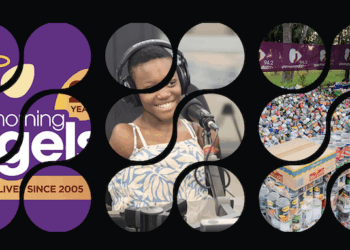The unexpected global catastrophe brought on by the Covid-19 pandemic constitutes a key turning point in the history of the global telecommunications industry.
It, in a sense, has ushered in the 4th Industrial Revolution, presenting significant opportunities for forward-thinking firms within this sector.
Digital communications channels have proved indispensable, and more than any other industry, telecommunications companies (telcos) have kept human society functioning during these perilous times.
As innumerable other industries grind to a crashing halt, there are opportunities for telcos to emerge as a crucial fibre in the fabric of our new socio-economic reality.
Newly formed partnerships in education has seen telcos offering heavily discounted data to university students to enable home study. In doing so, this has seen them gain traction within the highly influential educated youth, and create goodwill amongst customers, something we’ve seen telcos not realise anymore for many years.
In health, telcos have placed themselves firmly at the frontline of the pandemic by developing e-health services, patient care and geo-location enabled risk engines to support contact tracing.
These examples demonstrate a growing awareness amongst this sector. That aligning ‘doing good’ with ‘doing well’ could point to the dawn of a new golden age for the telecommunications industry.
With lockdown and work-from-home (WFH) becoming the norm, many companies within telecommunications have embraced the move to digitisation by building ecosystems that have accelerated the convergence of B2B and B2C solutions. The rolling lockdowns globally have forced many industries to digitise almost overnight, telcos have responded and have shown their resilience and agility by rising to the challenge.
With connectivity being the critical commodity it is right now, the external pressure to roll out more 4G and increasingly 5G will probably never be as strong again as it is now.
While telcos are anxious to cut costs and tighten belts in order to safeguard shareholders’ investments in the face of severe economic downturn, investments into network system capacity are not an area that these organisations can afford to sacrifice. It is now clear that these networks will help to fortify human society against the vagaries of an unknowable future.
The recent launch by data-only service provider Rain of a standalone 5G network in SA – the first in Africa, and one of the first in the world – heralds a new dawn for the continent. The low latencies and greater bandwidth allowed by the overarching 5G framework will allow digitisation to permeate society quicker than ever, from smart healthcare to virtual reality online gaming.
The ability of telcos to drive productivity and adapt fluidly to change will enable them to remain relevant and resilient. There are many examples of inspiring solutions within the industry where there has been a shift towards logical cooperation rather then cutthroat competition.
These trends are emerging as part of a wider pattern in the world in which sharing and partnerships are becoming the norm in a post-pandemic world.
The rapid escalation of services, which has allowed social distancing and remote working en masse, have changed the way the world operates forever. Telcos have helped to facilitate digital solutions for so many aspects of life – home-schooling infrastructure, mobile offices and healthcare access innovations. There is now an opportunity, however, for them to run with this trend and altruistically create value, contributing to the greater good.
Critical watershed moments, like the one we are faced with currently, can be the catalyst for evolutionary change that will both add value and contribute to the greater good.
What is clear is that the disruptions presented by Covid-19 present an opportunity for genuine growth and introspection on the part of the telcos industry, whose influence on society has never been greater.

Rob van Dale is the CMT and Digital partner at global management consultancy Kearney, a global consulting partnership in more than 40 countries. Driven to be the difference between a big idea and making it happen, we help our clients break through.














